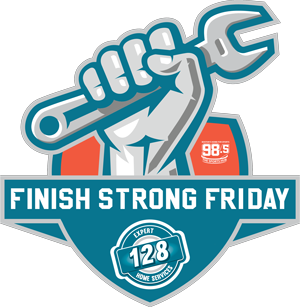
When you want to turn up the heat on your water for a hotwater bath, water for washing dishes, or water doing laundry, a tankless water heating system can provide the kind of water delivering performance and energy-saving efficiency you want.
When it comes to ensuring a steady supply of hot water, in line water heaters are an excellent choice for modern homes. Unlike traditional water heaters that store hot water, continuous water heaters heat water on demand, ensuring you never run out. This type of system is also known as a continuous hot water heater , offering the benefit of heating only what you need, when you need it. Another option is the instant hot water heater , which provides near-immediate hot water, perfect for busy households. Many homeowners wonder, how do electric water heaters work compared to other systems? The answer lies in their efficient design, which allows for consistent heating without the need for a bulky tank. If you prefer precise control over your water temperature, these systems make it easy to set and maintain your desired hot water temperature . For those in need of an even faster solution, the on demand water boiler delivers hot water instantly, ensuring you never have to wait. Whether you’re considering an in line water heater or a more traditional option, it’s important to choose the system that best fits your needs for hotter water heaters .
If you’re wondering what is tankless water heater, it’s a modern solution to traditional water heating that provides endless hot water on demand. An instantaneous hot water heater like this can be an inline hot water heater or a gas tankless water heater. The main difference between these and traditional heaters is that tankless gas water heaters don’t store water but heat it as it flows through the unit. What are tankless water heaters exactly? They are systems designed to deliver hotwater efficiently, with gas tankless water heaters being a popular choice for their high performance and energy efficiency.
An on-demand tankless water heater delivers instant hot water when you turn the knob on your water faucet, and the way a tankless water heating unit works to turn up the heat is not only interesting but energy-efficient.
- When you turn on the water faucet, the water passes through the on-demand inline hot water heater’s heating element.
- The heating element in the tankless water heater then works to heat up the water, and the heating element in the tankless water heater is either powered by electricity or a gas flame.
- Tankless on-demand hot water heaters deliver a constant flow of hot water without the traditional storage tank found on many water heaters, and with a water flow that comes out of a tankless water heater at a rate of two gallons of water per minute up to five gallons of water per minute.
Talk with a Tankless Hot Water Heater Expert Today
Tankless Water Heating Units and Meeting the Demand for Hot Water
Because tankless water heaters only produce from two gallons of hot water up to five gallons of hot water each minute, it may be a challenge for a tankless heating unit to produce enough hot water if your family uses an extreme amount of hot water. This especially applies if several sources are turned on at the same time, such as a washing machine and a dishwasher using hot water from your tankless heating system simultaneously.
The way your family uses hot water determines if a single tankless hot water heater is able to meet the demand for hot water for your family. However, if one tankless heater doesn’t provide enough hot water, it’s also possible to install two or three tankless water heaters in tandem to double or triple the hot water output. Installing one tankless water heater at each point of hot water use helps meet the high demand for hot water.
Energy Efficiency of Tankless On Demand Hot Water Heaters
Choosing a tankless water heater to make hot water for your home is often a more energy-efficient way of getting the hot water you need, rather than choosing a traditional tank water heater. This is because with a tankless hot water heating system, you aren’t paying to heat water that stands in the tank of a storage-type water heater in your Greater Boston home until it’s needed. However, the amount of heated water your family uses each day affects whether you’re likely to see energy savings on hot water production by choosing an on-demand tankless water heater over a water heater that has a storage tank that holds your hot water after heating it.
Talk to a Pro About Tankless Water Heating
The potential for saving money on energy costs to heat water with a tankless water heater is part of why we recommend discussing your family’s hot water consumption with your professional technician from 128 Plumbing. Your tankless heater installation technician is able to go more in-depth with you, explaining additional details about the way your tankless water heater will work. Your 128 plumbing pro will also be on hand to offer more details about the potential energy use or savings of switching to a tankless water heater or having one repaired.
Gas or Electric Tankless Water Heaters
While both gas tankless water heating systems and electric tankless water heaters perform well at providing you with hot water, tankless hot water heaters that are powered by gas are known for delivering a higher rate of flow than electric tankless water heaters. One potential drawback of gas-powered tankless water heaters is that the pilot light in some models stays on constantly, using energy whether anyone is using the hot water that comes from the tankless water heating unit in your Eastern Massachusetts home or not.
Your plumbing professional from 128 Plumbing is available as a source of information for you when you want to know more about the gas use and estimated costs of using a tankless heating source that operates on gas or electric power for heating your water with a tankless system, rather than a storage-type water heater.
Conserving Energy With a Tankless Gas Water Heater
Your technician may be able to suggest ways to reduce the amount of gas used, such as turning the tankless water heater off when it’s not being used. Your technician may also recommend choosing a tankless hot water heater that’s made with an intermittent ignition device, or an IID.
Choosing a tankless water heater with an IID is a way to help you reduce the amount of gas your tankless water heater uses, so the flame only kicks on when you need hot water. An IID is a type of automatic ignition device that works when it is triggered by a spark that occurs when you initiate the demand for hot water.
Short-Term Costs and Long-Term Advantages of Tankless Water Heaters
Tankless water heaters typically have a higher initial cost than tank water heaters. However, because tankless water heaters are so energy efficient, you may recoup your initial investment much quicker than you can recover the cost of a new tank water heater. The amount of hot water you use in your home each year affects how quickly you break even on the cost of purchasing on-demand water heaters.
You save money due to the longer life expectancy of a tankless water heating unit as well. Tankless water heating units last around 20 years and also have parts available that can extend that number out to as long as 35 years. Compare the potential life expectancy of a tankless water heater to that of a tank water heater, which is approximately 10 years. You also save on the cost of heating water due to the energy-efficient way a tankless water heating system works.
Why You Should Have a Tankless Hot Water Heater Professionally Installed
While a skilled DIY enthusiast may be able to successfully install a tankless hot water unit to heat the water in a home, tankless water heaters should be professionally installed to ensure the safety and proper flow of hot water. This is due to the fact that safety is an issue when connecting gas lines if you choose a gas-powered tankless water heater, and electrical wiring should be professionally handled for safety reasons when a tankless water system is being installed.
Some Final Points to Consider About Tankless Water Heaters
Getting the amount of hot water you need when you turn on the water faucet is at the heart of any tankless water heater choice.
- Choosing a tankless water heater that doesn’t offer the capacity to heat the amount of water you need may leave you taking a cold shower, and 128 Plumbing is here to make sure that doesn’t happen to you.
- We understand that you need a tankless water heater that has the capacity to heat the amount of water you need at any given time.
- We also know that the capacity a tankless system puts out may be affected by the cold water coming into your home’s water pipes and into the tankless heater during cold Massachusetts winter months.
- When colder water enters the pipes in a tankless water heater, the tankless water heater must work harder to heat the water to the desired water temperature.
- Features like self-modulating capabilities in the tankless water heater can help with the water temperature adjustment in situations like this.
- A tankless water heater that works great at heating water in a warm climate may not be powerful enough at producing hot water in a colder climate, but that’s an issue that’s easily resolved by choosing a tankless water heater that’s designed to stand up to the climate while heating the water in your Massachusetts home.
At 128 Plumbing, selling and installing on-demand tankless water heaters are among our specialties. We also provide information about maintaining tankless water heaters to Middlesex County homeowners, and our skilled technicians are on-hand to provide service for your malfunctioning tankless on-demand water heater. Contact us today to schedule an appointment for tankless water heater service or installation.




